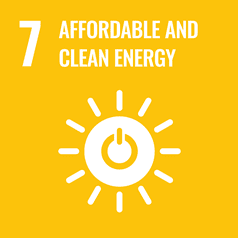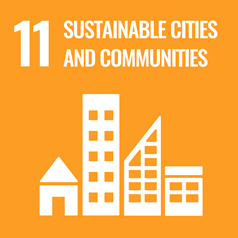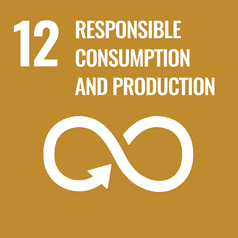
Creating the building blocks for new energy storage
MGA Thermal is revolutionising the renewable energy storage sector with technology developed at the University of Newcastle.
MGA Thermal has created an entirely new form of energy storage that’s stacking up to be a game-changer on the global stage.
It relies on engineered materials called Miscibility Gap Alloys (MGA), which can store energy generated from renewable sources like wind and solar to help power the manufacturing and heavy industry sectors.
These industries use up to 500 percent more energy than the residential sector, so finding ways to reduce emissions and support the transition to green energy solutions is critical.
From idea to commercial startup
The Miscibility Gap Alloys are manufactured into small, stackable blocks. Each block is about the size of a shoe box, weighs roughly 10 kilograms and can store heat energy up to 650 degrees Celsius.
The energy storage breakthrough took shape in 2011, when University of Newcastle researchers combined two elements – graphite and aluminium alloy – which had different melting temperatures.
When heated, the fine grain components of the alloy melt and store energy while the solid component holds everything together. Because the core elements are common and abundant, the blocks can be produced for about 10 percent of the cost of lithium batteries while producing the same amount of energy.
With support from the University’s Integrated Innovation Network (or I2N) and the CSIRO ON Accelerate program, the University research team took their new energy storage solution from an idea to a commercially viable startup.
MGA Thermal was officially formed in 2019 by Honorary Professor Erich Kisi who co-invented the technology and University alumnus Dr Alex Post.
The company built a manufacturing plant in the Hunter region in 2023 which can produce 200 energy storage blocks per day.
Since then, it has created a demonstration plant for its thermal energy storage system with support from the Australian Renewable Energy Agency and a US energy company.
The demonstration site is testing MGA’s energy storage technology in scenarios that simulate a variety of end-use applications at a scale of 5 megawatt-hours. The system is scalable to 6 gigawatt-hours of stored renewable energy.
The aim is to help decarbonise the heavy industry sector by providing an economical way to deliver clean energy at scale on a 24/7 basis.
Impact
- MGA Thermal has so far secured nearly $23 million in backing from more than a dozen investors to scale up its technology for commercial use.
- US oil giant Chevron selected MGA Thermal to conduct a clean steam solution study using a 5 megawatt-hour trial storage unit designed specifically for a Chevron site. The Front-End Engineering Design study was completed at the end of 2024.
- MGA Thermal has partnered with energy solutions firm Knode to pioneer Australia’s largest industrial-scale thermal energy storage project, based in Western Australia. In July 2025, it released results of a pre-feasibility study for a 180 megawatt-hour industrial project, which found the company’s thermal energy storage solution is economically competitive with traditional fossil fuel technologies at an industrial scale. This provides further validation of the commercial viability of MGA Thermal’s technology for heavy industry and paves the way for the next phase of the project.
- The company employs 35 people, including six PhD graduates from the University of Newcastle, at its NSW-based manufacturing plant.
- 2025: Named one of the ‘Top 25 Entrepreneurs Breaking New Ground’ by The Australian
- 2024: Won the 2024 Australian Climate Tech Awards, Impact Category
- 2022: Won the InnovationAus Translation Hero Award
- 2021: Received the Research Commercialisation award in The Australian Financial Review’s Higher Education Awards
Awards & accolades
Last updated August 2025.
More information:
Honorary Professor Erich Kisi
contact@mgathermal.com

Honorary Professor Erich Kisi
Our location in the Hunter is ideal. The region has a background as a strong centre for industry and there’s great access to raw materials.
Aligned with the United Nations Sustainable Development Goals
Read more research impact case studies
The University of Newcastle acknowledges the traditional custodians of the lands within our footprint areas: Awabakal, Darkinjung, Biripai, Worimi, Wonnarua, and Eora Nations. We also pay respect to the wisdom of our Elders past and present.





